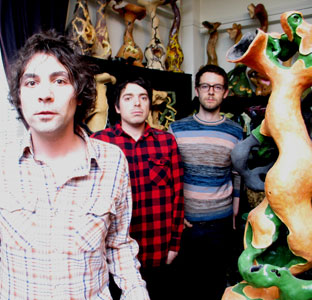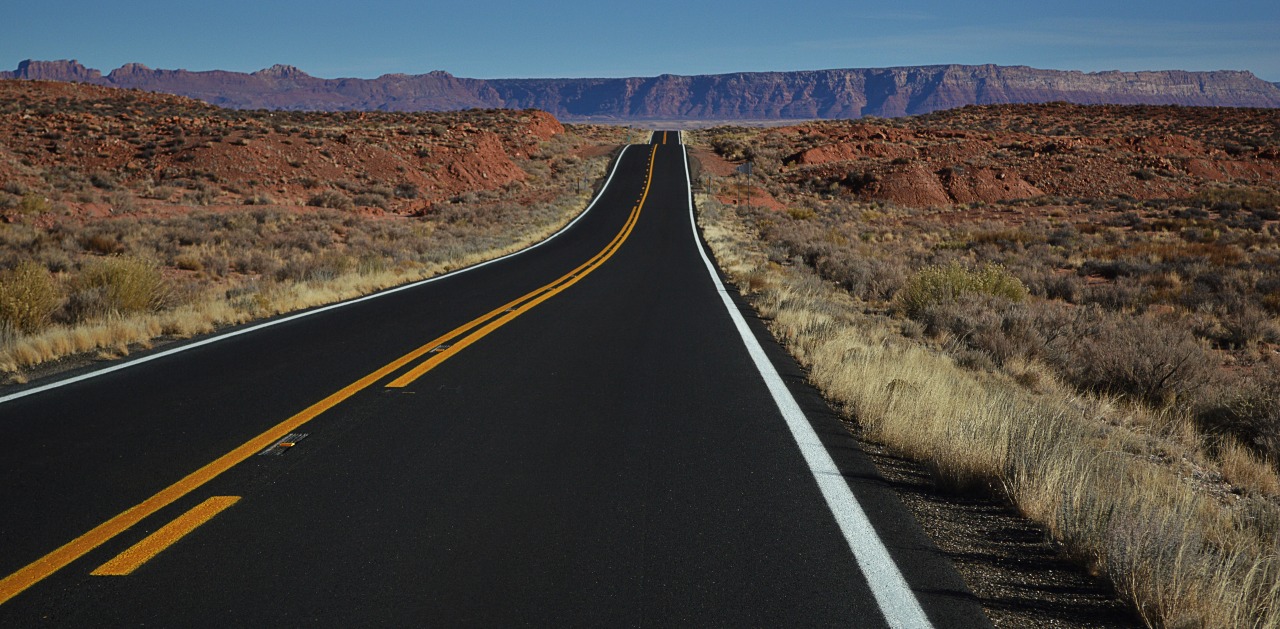THE MELANCHOLIC CLASSIC ROCK OF THE WAR ON DRUGS’ LOST IN THE DREAM
The War on Drugs : LOST IN THE DREAM
Pros: Classic rock sound and great songs
Cons: Second half of the album can’t quite keep pace with the spectacular first
Sounding somewhat like Tom Petty and the Heartbreakers if that band had formed a decade or so later in the context of the shoegaze movement, Philadelphia, PA based band The War on Drugs have built a reputation for being perhaps one of the best contemporary groups utilizing familiar 1970s and early ‘80s classic rock formulas. Led by singer/songwriter/guitarist Adam Granduciel (who has gone on record stating that The War on Drugs is essentially his solo project), this music has a nostalgic warmness to it that one is unlikely to find outside of the classic rock genre, and I would identify most every song the group makes as being perfect “road music” due to the propulsive, unflinching rhythms pushing the tracks along.

The band.
After 2011’s well-received Slave Ambient, Granduciel and company (namely multi-instrumentalists Dave Hartley, Robbie Bennett, and Charlie Hall) returned with 2014’s Lost in the Dream, an album that I’d have no problem calling one of the year’s absolute best recordings. Written about feelings of depression and loneliness experienced by Granduciel when he came back to everyday life following extensive touring through 2011-12, a melancholic tone permeates every track on this album which overflows with a sense of uncomfortable ennui. Despite the heaviness of the material though, it’s a rather inspiring record in that it’s suggestive of the fact that a person with perseverance can make it through any rough patch they face in life.
The album kicks off with “Under the Pressure,” a track which sums up the main ideas of the album quite well. Granduciel’s smoky but warm vocals essentially talk about disillusionment and a desire to break out from his everyday situation. The instrumental parts here are supremely calming even though the track constantly surges forward behind a driving rhythm. Like many of the tracks here, this opener (the album’s second single) is fairly lengthy at nearly nine minutes in length, but it never gets dull or boring; instead it builds in intensity over time, introducing wall of sound guitar and honky background saxophone bursts before a straight-up shoegaze finale of swirling ambient guitar tones. Second track “Red Eyes” was the lead single from the album and sounds quite a bit like Bruce Springsteen’s early ‘80s hits. The quiet verse sections here are contrasted by the loud chorus, and the track boasts another unflappable, infectious rhythm. As may be obvious by its title, “Suffering” ratchets the tempo down substantially in a song that’s lazy and more heartfelt, with resonant guitar chords and gorgeous warbly keyboard progressions making Granduciel’s lyrics hit home as he wonders about a loved one’s commitment level. Though it’s not my favorite track, this one pops up at the perfect point in the album, providing a counterpoint to the much more uptempo opening pair of tracks.

At South by Southwest a few years back.
“An Ocean in Between” initially has a more mechanical sort of feel to it with its heavy, churning bass line and light drum beat, but it eventually works into a poignant finale of yearning lyrics and bravura guitar work. It’s really a credit to Granduciel’s talent as a songwriter that he allows many of these tracks to play well into the seven to eight minute range: instead of just going through the motions, throwing in a few gimmicks and wrapping things up, the songwriter allows these tracks to really develop into something triumphant and almost transcendent at times. Possibly the one true anomaly on the album, “Disappearing” has the feel of an slower, early 1980s synthesizer ballad, while “Eyes to the Wind” returns to the realm of pure Americana rock and is probably my favorite track here. Playing out to a sauntering tempo, it’s very pleasant sounding, with vocals that recall Bob Dylan (if Dylan had a better voice…). I also really like the lyrics here; it may be the track that best defines and expresses the main themes of the album as a whole. Following the sparse, appropriately-named instrumental “The Haunting Idle,” we get the energetic, Springsteen-influenced piece “Burning,” and the twangy title track before the album concludes with “In Reverse.” This finale starts off sounding kind of ghostly with more Dylanesque vocals, but eventually builds heads into another laid back rock song section, ending the album on an agreeable but appropriately apathetic note.

This image felt appropriate here.
One of the best things about this album is its all-encompassing theme dealing with modern discontent (honestly, the album’s title and cover art are absolutely spot on). Lyrics throughout the album seem to have been written from the perspective of someone struggling to find meaning in their life, but Granduciel never resorts to making “woe is me” statements. Instead, he sort of works through these issues as the lyrics and songs progress, thus providing the listener with a perspective on how to make things work even when faced with intense personal dissatisfaction. All in all, it’s a remarkable, coherent work and a definitive artistic statement in an era when far too many musical groups simply pump out albums full of singles in an attempt to appeal to teenagers. Lost in the Dream seems to speak to an older, much more thoughtful listening audience, and I think it has appeal beyond the hipster crowd that usually latches onto this kind of indie rock album. For the fan of classic rock who doesn’t know where to even begin in the modern music scene, The War on Drugs would be an ideal place to start. Though it’s not particularly upbeat, Lost in the Dream is, in my opinion, inspiring and I’d give it my highest recommendation.
I’m a bit run down at the moment…















